Healthcare Trends Posts on Crowch
October unites millions of people across the world. When we see the pink ribbon, we know it is not just a symbol — it is a story of struggle, hope, and faith.
Breast cancer is a diagnosis that may sound frightening and unexpected. But behind every diagnosis stands a person who continues to live, to dream, and to fight. Many women go through incredibly difficult challenges while holding on to their remarkable inner strength. Their stories inspire others — proving that even in the darkest times, there is always light to be found.
Why does this month matter so much?
- It reminds us that early detection saves lives. Simple self-exams and regular doctor visits can be life-changing.
- It highlights the need for support. Care from friends, family, and communities helps ensure that no one faces the journey alone.
- It represents solidarity. Wearing the pink ribbon may seem like a small act, but it carries powerful meaning.

Breast Cancer Awareness Month is not only about illness — it is about strength. The strength of those who are fighting. The dedication of doctors and nurses who work tirelessly for their patients. The love and resilience of families and friends who stand as a pillar of hope.
Each of us can take a step forward: reminding loved ones about prevention, sharing helpful information, supporting a charity, or simply offering words of encouragement. Even the smallest act can save a life.

October in pink is a symbol of a future where knowledge, care, and unity are stronger than fear. It is a time to speak loudly, to inspire one another, and to remember: together, we can do more.
October is a special month. It is a time when millions of people across the globe unite for one purpose — to remind everyone about the importance of health and to support those fighting breast cancer.
The pink ribbon we see on clothing, buildings, and social media is more than just a symbol. It is a sign of solidarity. It is a way of saying: “You are not alone. We are with you.”
Breast cancer can sound frightening as a diagnosis. But it is also a story of strength and resilience. Stories of women who continue to work, raise children, chase their dreams, and believe in the future despite the challenges of treatment. Stories of families and friends who stand by their loved ones, becoming sources of light, encouragement, and energy during the darkest moments.
Why is this month so important?
- Early detection saves lives. Regular check-ups, mammograms, and self-exams are not just routine — they are life-saving practices that can make all the difference.
- Support makes a difference. Sometimes, the most valuable help is not financial or medical, but simply being there, listening, offering words of kindness, and reminding someone that they are not facing this journey alone.
- Everyone can contribute. You don’t need to be a doctor or a scientist to make a change. Sharing awareness materials, joining a charity event, donating, or even wearing a pink ribbon sends a powerful message of hope.
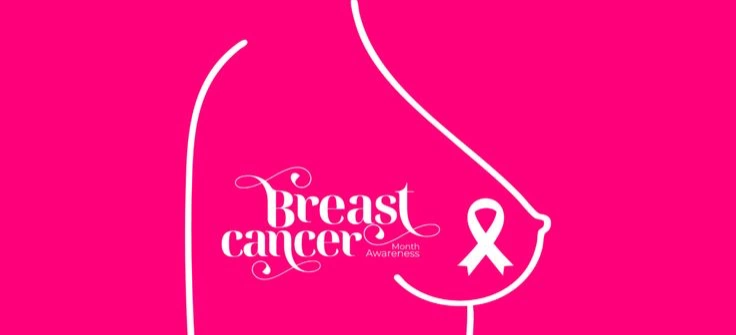
Breast Cancer Awareness Month is not only about illness. It is about hope, courage, and community. It is about believing that with advances in medicine, growing awareness, and collective action, more and more lives can be saved. It is about remembering that no one should ever face such a challenge in isolation.
This month also serves as a reminder that taking care of ourselves is an act of strength, not weakness. Scheduling a screening, talking openly about health with friends and family, or encouraging loved ones to prioritize their well-being are small steps that can lead to big changes.
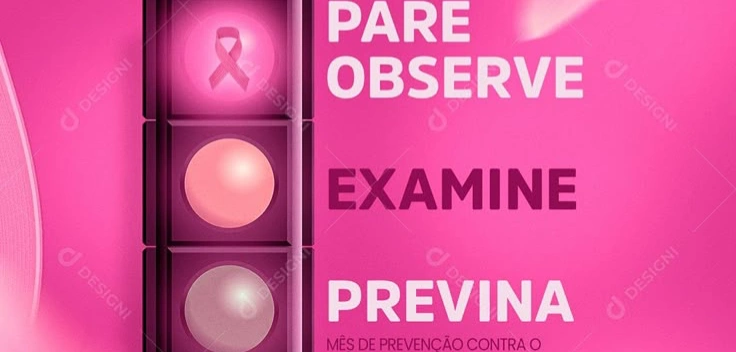
October in pink is our shared voice. A voice that speaks of support, of unity, and of life. Together, we can raise awareness, show compassion, and build a future where the words “breast cancer” no longer bring fear, but instead inspire stories of victory, survival, and strength.
Let’s wear the ribbon with pride, speak out without fear, and support one another with love. Because when we stand together, hope shines brighter than fear.
Every year, October turns pink — the color of hope and strength. The pink ribbon has become a global symbol of the fight against breast cancer and a reminder that caring for our health can save lives.
Breast cancer is not only a medical issue. It is the story of millions of women and their families. It is a challenge that tests resilience but also reveals incredible courage, patience, and love.Why is this month important?
- It reminds us of the importance of early detection. Self-exams, regular doctor visits, and mammograms can help detect the disease at an early stage.
- It provides support to those who are fighting. Every story of struggle is also a story of strength that inspires others.
- It teaches us to speak openly. Breaking down myths and stigma around the disease makes health a natural part of everyday conversation.

This month is about unity. When millions of people around the world come together with one goal — to save lives. Every kind word, every social media post, every act of participation in a charity event matters.
It is important to remember: taking care of yourself is a sign of strength, not weakness. A doctor’s visit, a conversation with a friend, reminding your mother or sister about prevention — these are small steps that can save a life.

Breast Cancer Awareness Month is not only about illness but also about hope. It is about the strength of women, the support of loved ones, and the love for life. It is a time when pink becomes the symbol of the fact that together, we are stronger than any challenge.
⚠️ The Invisible Deficiency Behind Brain Fog
You might associate iodine with thyroid health, but its influence goes far beyond hormones. A silent iodine deficiency can sneak up on you in the form of:
- Constant mental fog
- Short-term memory lapses
- Difficulty staying focused
- General lethargy and lack of drive
What’s really happening? Iodine is essential for the production of thyroid hormones — which in turn regulate the brain's metabolism, energy levels, and cognitive performance.

🔬 What the Research Says: Iodine and Cognitive Power
Scientific studies consistently show that iodine supports neural activity and mental alertness, especially under stress. Thyroid hormones, powered by iodine, act as brain boosters — they help us stay sharp, emotionally balanced, and capable of learning new information.
🧪 In one clinical study, schoolchildren who received 150 mcg of iodine daily for 28 weeks demonstrated a significant increase in logical reasoning and cognitive test scores compared to the control group.
This proves: when iodine is restored, so is brain performance.
🚩 How Iodine Deficiency Affects Your Mind
Even a mild iodine shortage can dull your cognitive edge. You might notice:
- Poor concentration
- Slow information processing
- Increased mental fatigue
- Mood dips and low motivation
- Struggles with recall and memory retention
These effects are more common than many realize, especially among:
- Urban dwellers exposed to stress and pollution
- People with thyroid imbalances or hormonal disruptions
- Smokers and those experiencing chronic fatigue
- Individuals living in iodine-deficient regions

🌊 Iodine and the Brain: A Lifelong Partnership
The brain relies on stable iodine levels to regulate neurotransmitter function, maintain mood balance, and fuel problem-solving abilities. Unlike some nutrients, iodine can’t be synthesized internally — it must come from the diet or supplemental sources.
Without enough iodine:
- Thyroid function declines, disrupting hormonal balance
- Cognitive abilities fade, leading to slower thinking and memory issues
- Emotional resilience drops, making stress feel more overwhelming
🐚 Best Sources of Iodine: From Nature to Nutrition
While seafood, seaweed, and iodized salt are good sources, they don’t always provide enough — especially for people with high cognitive demands or limited diets. That’s where nutritional supplements step in.
🌿 Marine Iodine Supplements:
- Restore the body’s daily iodine needs
- Support mental performance and emotional balance
- Stimulate thyroid hormone production
- Improve your adaptation to mental stress
These are especially helpful during periods of high stress, exams, career burnout, or postpartum recovery — all times when the brain is under pressure.
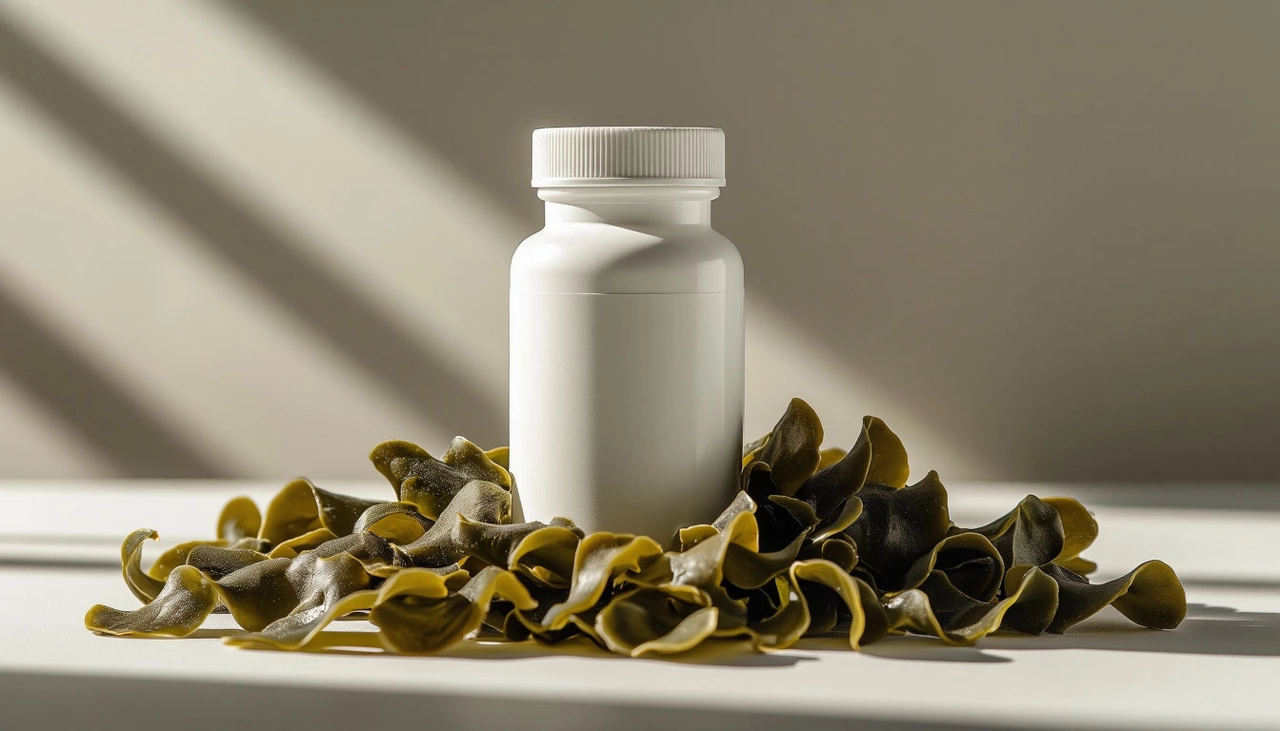
🧘♀️ Feel the Difference: Mental Energy Recharged
If your brain feels like it’s in “power-saving mode,” and you're constantly reaching for more coffee or struggling to complete tasks, iodine might be the missing link.
A quality iodine supplement, especially one derived from marine sources, offers a safe and effective way to restore mental clarity, focus, and balance.
🌟 Final Word: Small Mineral, Massive Impact
Iodine may be tiny in size, but its effects on your mind, mood, and motivation are profound. Whether you're a student, busy professional, or simply feeling mentally sluggish — this often-overlooked mineral might hold the key to a clearer, more focused mind.
Support your brain — and it will support you. 🧠✨
🧒 Why Kids Need Omega-3 Fatty Acids
If your child struggles to concentrate, gets tired easily, or seems to catch every cold going around — you might be missing a key nutritional piece: omega-3 fatty acids.
These essential fats are crucial during periods of rapid growth and cognitive development, especially when kids start school and face new mental challenges.
Omega-3s are responsible for the formation of brain and nerve cells, the development of vision, and the regulation of immune responses.

🌟 Science-Backed Benefits of Omega-3 for Children
Extensive research highlights the impact of omega-3s — particularly DHA and EPA — on children's health. Children who receive enough omega-3s tend to:
✅ Perform better in school — improved memory, attention, and learning capacity
✅ Get sick less often — stronger immune function
✅ Cope with stress more easily — reduced anxiety and mood swings
✅ Experience fewer skin problems like dryness or inflammation
But here’s the catch: the body can’t produce omega-3s on its own. These fats must come from food — ideally fatty fish, flaxseed, or algae-based sources. Unfortunately, modern diets often lack these components, especially in picky eaters or children who dislike fish.
🧐 How to Choose the Right Omega-3 Supplement for Your Child
With so many options on the shelf, it can be hard to know what to look for. Here’s what parents should keep in mind:
1. 🧪 Focus on EPA and DHA Content
Not all omega-3s are created equal. The two most important components for children's development are:
- DHA (Docosahexaenoic Acid) – supports brain development and visual acuity
- EPA (Eicosapentaenoic Acid) – provides anti-inflammatory support and helps regulate mood and immunity
Look for a product that clearly states the amount of DHA and EPA per serving. A higher DHA content is particularly important for supporting concentration and brain function.
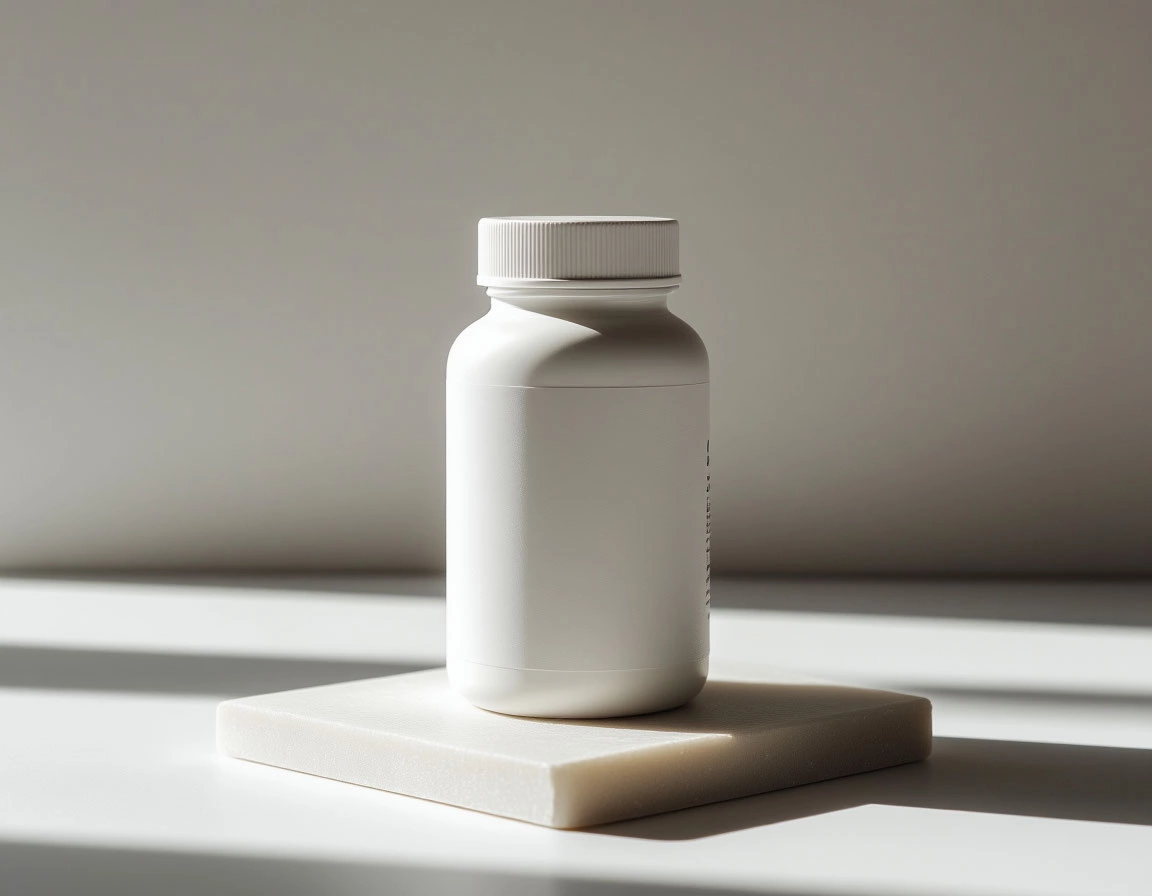
2. 🌊 Source Purity and Safety
Fish oil can contain heavy metals like mercury or lead if not properly purified. Choose supplements that are:
- Molecularly distilled or filtered for toxins
- Certified by third-party labs (e.g., IFOS, NSF, or USP)
- Sourced from wild-caught small fish like anchovies or sardines — less risk of contamination
3. ☀️ Bonus: Vitamin D3 Inclusion
Many high-quality omega-3 supplements for kids now include Vitamin D3, an added benefit for immune support, bone health, and mood regulation — especially vital for children living in northern climates or spending little time outdoors. Vitamin D and omega-3s work synergistically, reinforcing each other’s effects on overall vitality.
✅ What to Choose, Based on Your Child’s Needs
- For mental focus and learning: Choose Omega-3 with higher DHA concentration
- For frequent illness or low sun exposure: Choose Omega-3 that includes Vitamin D3
- For picky eaters: Opt for chewable or flavored formats that kids are more likely to enjoy
👨👩👧 Smart Nutrition for Growing Minds
Omega-3s are more than just supplements — they are building blocks for your child’s future health, academic success, and emotional resilience. In a world of fast food and digital distractions, ensuring a steady intake of these essential fats can make a real difference. High-quality omega-3 supplements fill the gap when diet falls short, giving your child the mental clarity, immune strength, and balanced mood they need to thrive.
🏋️ Bulking Isn’t Just About Eating More
Gaining weight — especially in the form of muscle rather than fat — is no easy task. It requires a fine-tuned balance between nutrition, exercise, and metabolic efficiency. One of the biggest fears for anyone trying to bulk up is gaining too much body fat, which can blur muscle definition and undermine progress.
That’s where strategic supplementation comes in. Surprisingly, two supplements more commonly associated with fat loss — L-Carnitine and Lipotropic Factors — may offer powerful support for lean mass gains.

🔋 What Is L-Carnitine and How Does It Help?
L-Carnitine is an amino acid-like compound that plays a vital role in energy metabolism. It shuttles fatty acids into your cells’ mitochondria, where they’re burned for fuel — especially during physical activity. While commonly used in weight-loss stacks, L-Carnitine can be a secret weapon for muscle growth too.
✅ L-Carnitine Benefits for Muscle Gain
- Enhances endurance and training intensity (PMID: 34842765)
- Reduces fatigue and supports faster recovery
- Helps minimize fat gain during calorie surplus
- Promotes efficient fatty acid transport — fueling your workouts and recovery
L-Carnitine is especially useful if you’re training hard, maintaining a high-calorie diet, and want to stay lean while building size.
🧠 What Are Lipotropic Factors?
Lipotropic compounds like choline, inositol, and methionine work differently. Rather than fueling workouts directly, they support liver function and optimize fat metabolism, helping the body process and eliminate excess lipids more efficiently. These nutrients are crucial for people eating protein-rich diets or consuming more calories than usual. They reduce the risk of fatty liver, promote better digestion, and prevent the buildup of unwanted fat.
✅ Lipotropic Factor Benefits for Clean Bulking
- Improves fat processing and reduces risk of fat accumulation
- Supports liver health under metabolic stress
- Enhances the effect of other supplements, like L-Carnitine
- May help stabilize appetite and digestion
If you're gaining weight and notice sluggish digestion, bloating, or fat gain despite clean eating, Lipotropic Factors might be your missing piece.
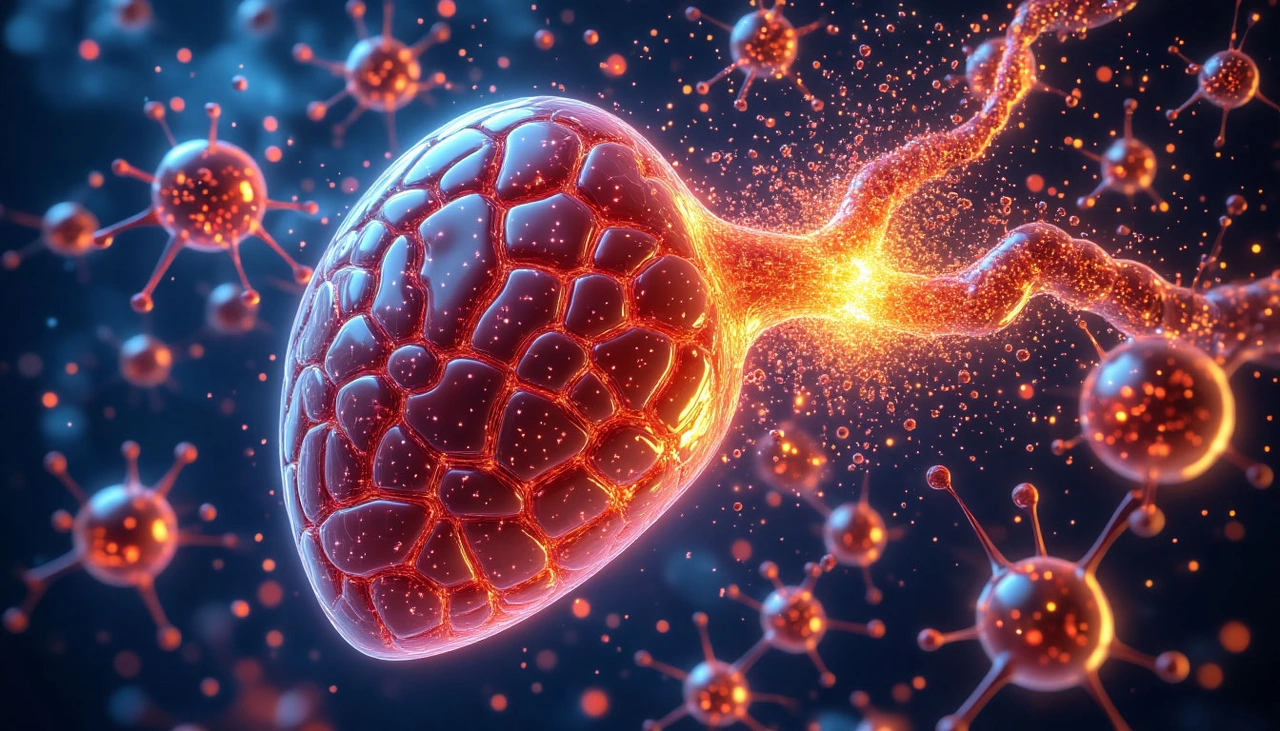
⚖️ Which One Should You Choose?
It depends on your current challenges and goals:
🏃 Choose L-Carnitine if:
- You’re working out regularly
- You want to train harder and longer
- You're trying to avoid fat gain during a bulk
- You need more energy and faster recovery
🧬 Choose Lipotropic Factors if:
- You notice digestive stress or liver strain
- You feel sluggish or have inconsistent appetite
- You're eating a high-protein or high-fat diet
- You tend to store fat easily, especially in the midsection
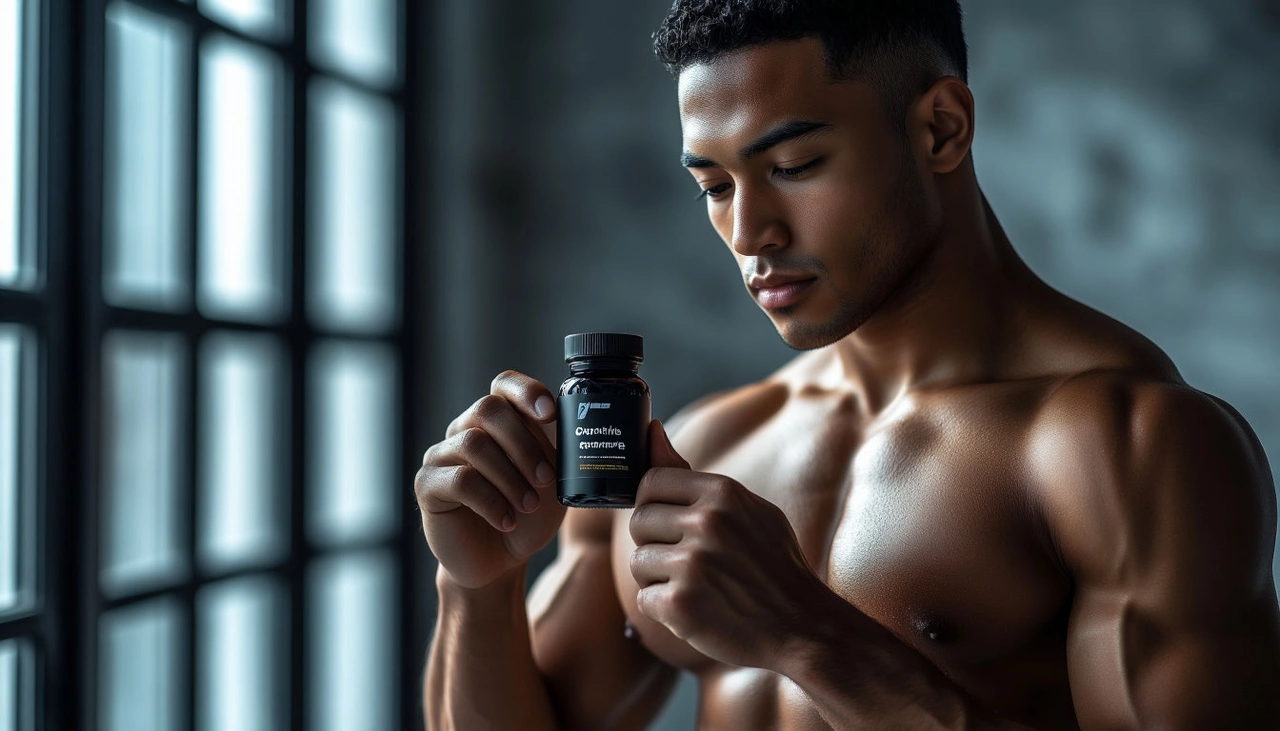
💡 Why Not Combine Both?
The truth is — you don’t have to choose. These two supplements complement each other beautifully.
- L-Carnitine powers your muscles and boosts performance
- Lipotropic Factors optimize liver function and fat clearance
- Together, they promote clean gains, better energy, and healthy metabolism
This dynamic duo helps you gain size without sacrificing definition, which is the holy grail for athletes and fitness enthusiasts alike.
🔥 Final Thoughts: Build Muscle Smarter
Bulking doesn’t have to mean bloating or losing your definition. By supporting your body with the right metabolic tools, you can gain muscle efficiently, protect your health, and keep fat accumulation under control. Whether you’re new to strength training or deep into your bodybuilding journey, adding L-Carnitine and Lipotropic Factors may be a game-changer.
😴 Tired of Feeling Tired? You’re Not Alone
Struggling to fall asleep, waking up groggy, or needing extra time to fully “wake up” in the morning — these complaints are more common than ever. Many people turn to melatonin supplements hoping for a fix. But often, melatonin can lead to daytime drowsiness, headaches, or simply no improvement at all.
If that sounds familiar, it might be time to try a more natural and body-friendly alternative — 5-HTP.

🌿 What Is 5-HTP and Why Is It Different?
5-HTP (5-hydroxytryptophan) is a naturally occurring compound derived from the amino acid tryptophan. It’s a direct precursor to serotonin — a neurotransmitter that regulates mood, relaxation, and sleep. And when serotonin levels are balanced, your body is more capable of producing melatonin on its own, right when it needs it — not too much, not too little.
Unlike melatonin, which delivers the end product of the sleep cycle externally, 5-HTP supports the body’s natural rhythm, stimulating internal melatonin production in sync with your own circadian clock.
💡 5 Reasons to Choose 5-HTP Over Melatonin
1. Supports Your Mood and Sleep Together
Because 5-HTP boosts serotonin first, it doesn’t just help you sleep — it can also improve your emotional well-being. This dual effect makes it especially helpful for people dealing with stress-related insomnia or seasonal mood shifts.
2. No Hormonal Disruption
Melatonin is a hormone. Taking it in supplement form may affect your body’s natural hormone balance, especially with prolonged use. 5-HTP works upstream and helps your body make just the right amount of melatonin — nothing more, nothing less.
3. Fewer Side Effects
5-HTP is generally well tolerated. Users often report less grogginess, fewer headaches, and no next-day fog compared to melatonin. It doesn’t force your body to sleep — it simply encourages it gently.
4. More Effective for Irregular Sleepers
If you’ve tried melatonin and it hasn’t helped (especially for chronic or stress-induced sleep issues), 5-HTP might be more effective. It helps recalibrate the entire serotonin–melatonin cycle, which melatonin alone can’t do.
5. Naturally Derived
Most 5-HTP supplements are sourced from Griffonia simplicifolia, a plant native to West Africa. It’s a cleaner, non-synthetic approach that works with your body rather than overriding its signals.

🌙 How to Use 5-HTP for Restful Nights
The optimal way to take 5-HTP depends on your sensitivity and sleep issues, but here are general guidelines:
- Start low: Begin with 50 mg about 30–60 minutes before bed
- Monitor your mood: You may notice calming effects after a few days
- Avoid mixing with antidepressants without medical supervision, as both affect serotonin levels
- Consider timed-release formulas if you struggle with waking up in the middle of the night
Many people feel the first benefits within a week, including deeper sleep and improved emotional resilience throughout the day.
🧘 Bonus: Combine 5-HTP with Lifestyle for Best Results
Supplements are only part of the picture. If you're introducing 5-HTP, consider pairing it with:
- A consistent bedtime routine (same time every night)
- Light stretching or yoga to ease tension
- Limiting screens and blue light in the hour before sleep
- Magnesium or L-theanine for added relaxation
These gentle habits can amplify the benefits of 5-HTP and make your transition to deeper sleep even smoother.
💊 The Hidden Cost of Healing: What Medications Do to Your Liver
Modern medications have revolutionized healthcare. From managing blood pressure to alleviating chronic pain or balancing mood, they offer life-changing relief. However, their effectiveness often comes at a price — and that price is paid by your liver.
As the body’s primary detox organ, the liver filters out drugs, toxins, and metabolic byproducts. Prolonged use of medications can overwork the liver, damage hepatocytes (liver cells), and disrupt fat metabolism. That’s why supporting liver health while on medication is not just helpful — it’s crucial.
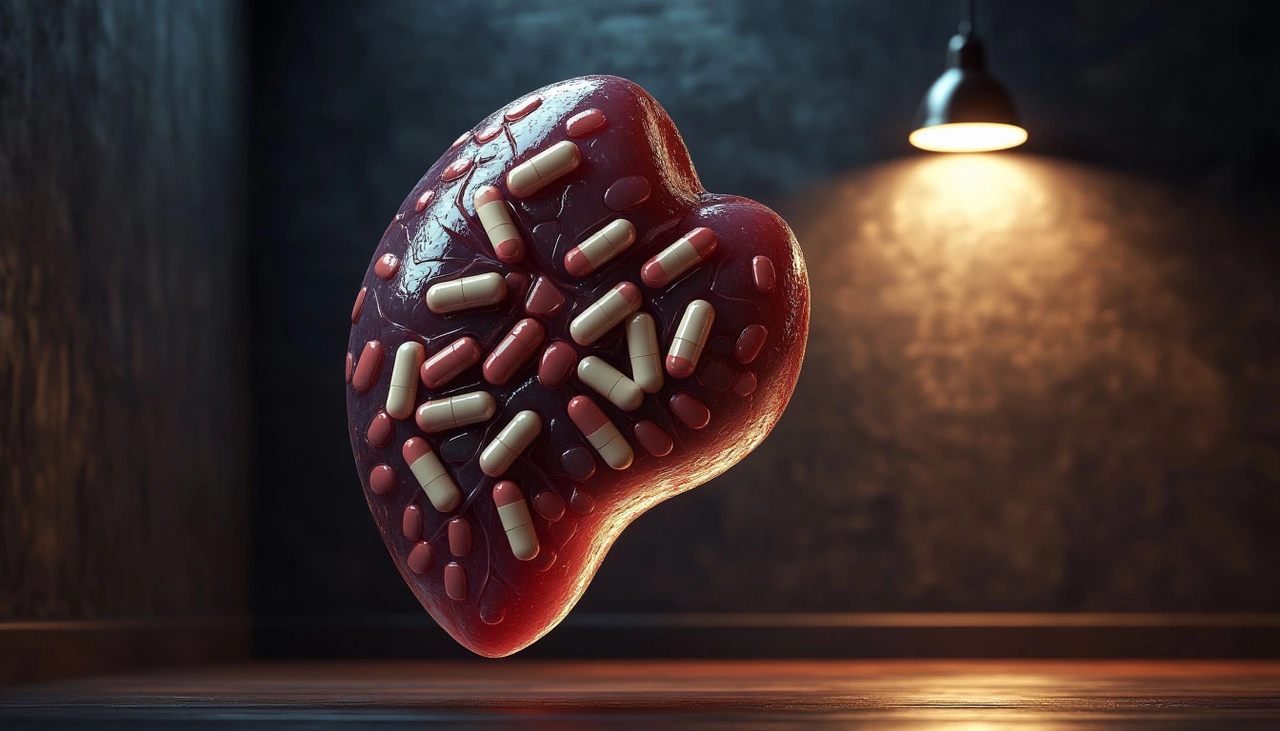
🌿 Supplement Smart: Natural Aids for Liver Resilience
To counteract the burden medications place on the liver, specific dietary supplements can be incorporated into your daily routine. These supplements work by strengthening liver cells, enhancing detox pathways, and reducing inflammation.
Let’s explore three well-researched liver-supporting formulas.
🧪 1. Liver Formula: Foundational Protection & Repair
This comprehensive blend is designed for people taking medications long-term or those exposed to environmental stressors. It delivers a multi-pronged approach:
- Hepatoprotective action: Strengthens liver cell membranes and helps regenerate damaged hepatocytes.
- Bile production support: Promotes bile flow, which assists in the elimination of toxins and fat digestion.
- Cholesterol regulation: Helps lower LDL (“bad”) cholesterol and balance lipid metabolism.
- Antioxidant defense: Neutralizes free radicals and reduces inflammation caused by oxidative stress.
- Fibrosis prevention: Reduces the risk of liver tissue scarring, especially during extended medication use.
This formula is ideal for general liver maintenance, especially during times of physical or pharmaceutical stress.
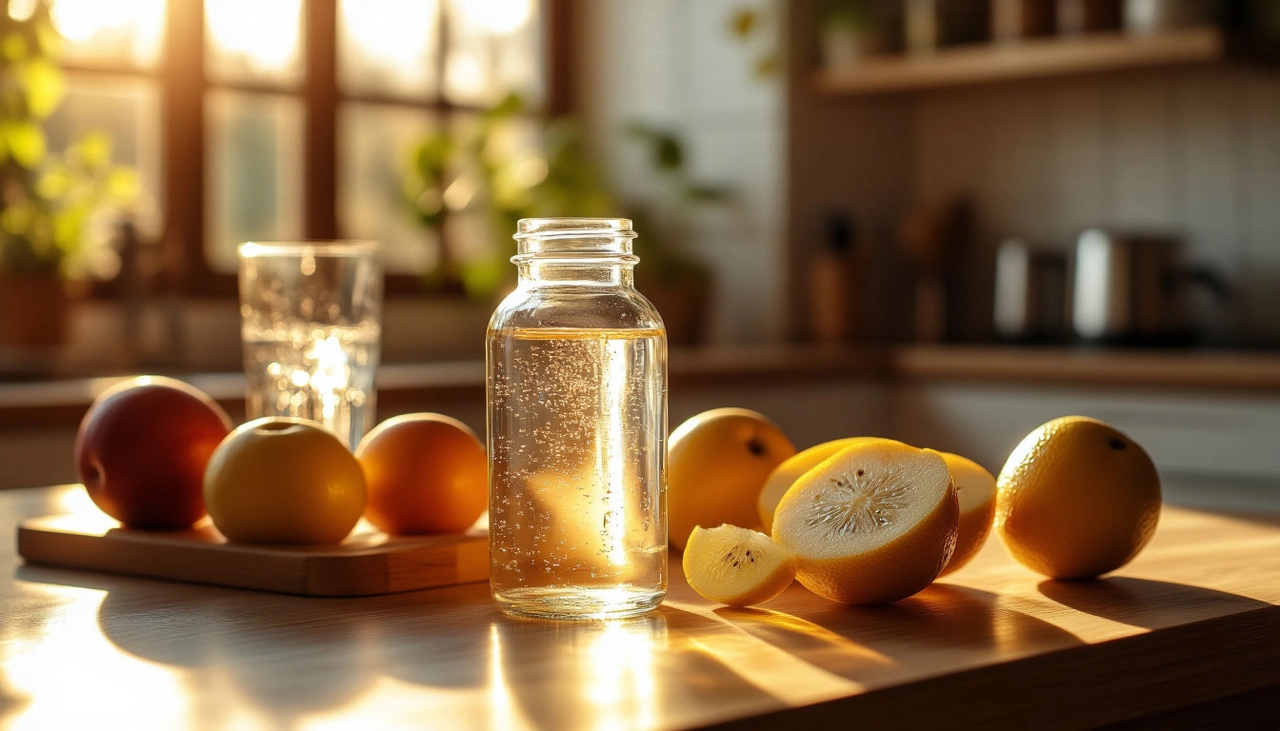
🌿 2. Artichoke + Vitamin B3: Gentle Detox & Digestive Comfort
Artichoke is a time-tested herbal remedy known for its bile-boosting and liver-cleansing properties. When combined with vitamin B3 (niacin), the benefits go even further:
- Toxin elimination: Facilitates the breakdown and removal of heavy metals, medication residues, and metabolic waste.
- Improved digestion: Stimulates digestive enzymes and reduces discomfort like bloating or constipation, which can arise during certain treatments.
- Metabolic regulation: Helps balance blood sugar and cholesterol levels, supporting overall metabolic health.
- Gut health support: Encourages a healthy microbiome and protects against medication-induced dysbiosis.
This supplement is perfect for those seeking a milder, plant-based detox while staying on prescribed medications.
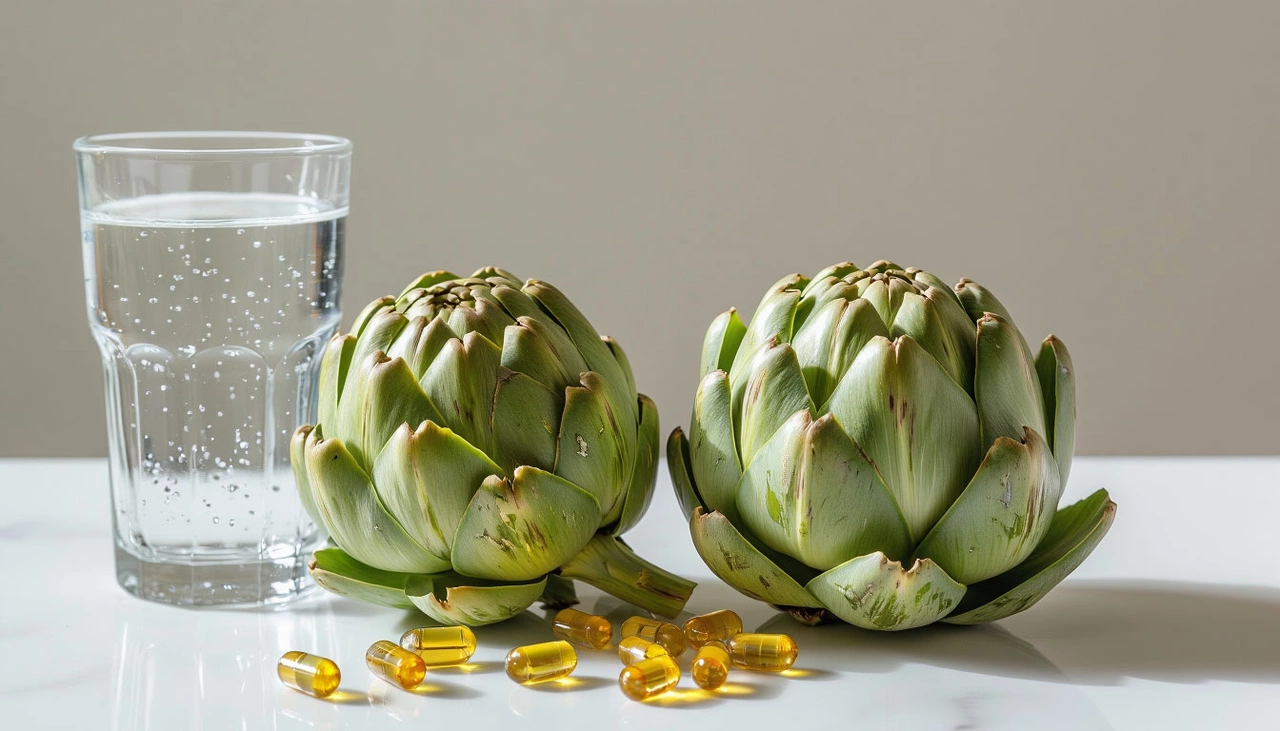
🔬 3. Lipotropic Complex: Fat Metabolism & Cellular Protection
This blend includes methionine, inositol, and choline — a trio of nutrients known for their lipotropic (fat-processing) properties. It's a strategic choice for anyone dealing with fatty liver, high cholesterol, or chronic pharmaceutical use.
- Methionine: Assists in flushing fats and toxins from the liver, reducing the risk of cell damage.
- Inositol: Supports insulin sensitivity and regulates leptin, making it valuable for metabolic disorders.
- Choline: Aids in fat transport and cholesterol breakdown, keeping the liver from becoming overburdened with fat deposits.
These nutrients work synergistically to improve fat metabolism, enhance detoxification, and reduce oxidative damage — ideal for those on high-fat diets, facing chronic stress, or on long-term medications.
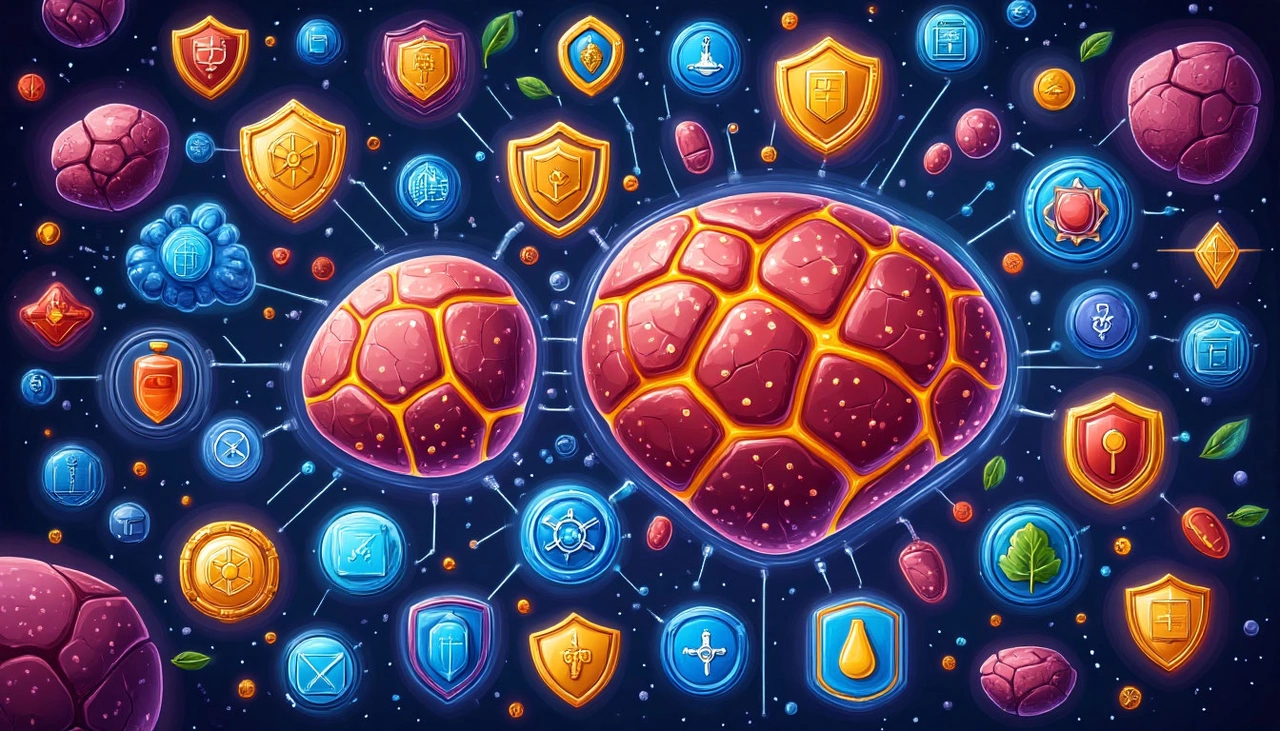
⚖️ Balance Matters: Don’t Let Your Liver Carry the Load Alone
If you’re undergoing medical treatment — even for mild or temporary conditions — your liver is doing the heavy lifting behind the scenes. Ignoring its needs can lead to metabolic imbalance, fatigue, digestive issues, and long-term liver strain. Supporting your liver with the right combination of nutrients and botanicals can make a measurable difference. These supplements don’t replace medications — but they do help your body process them more safely.
🧾 Final Thoughts: Proactive Wellness for a Healthier Liver
You don’t have to wait for liver problems to appear before taking action. By adding targeted supplements to your routine, you can strengthen your liver’s natural defenses, reduce medication-related side effects, and maintain optimal energy and digestion.
In today’s world of fast fixes and complex treatments, your liver deserves conscious care. With the right support, it can keep doing what it does best — filtering, protecting, and powering your body every day.
🌱 Invest in your liver today, and it will thank you for years to come.
🧬 What Is Zinc and Why Is It Essential?
You’ve probably heard plenty about calcium, magnesium, and iron, but zinc rarely gets the spotlight it deserves. Yet this trace mineral — needed in tiny amounts — is responsible for over 300 enzymatic reactions in the human body. That makes it absolutely crucial to health, even though we don’t need large quantities of it.
Zinc supports everything from cell growth and immune defense to DNA synthesis and wound healing. During life stages involving rapid growth — such as childhood, adolescence, and pregnancy — the demand for zinc increases, making it all the more vital to meet your needs.
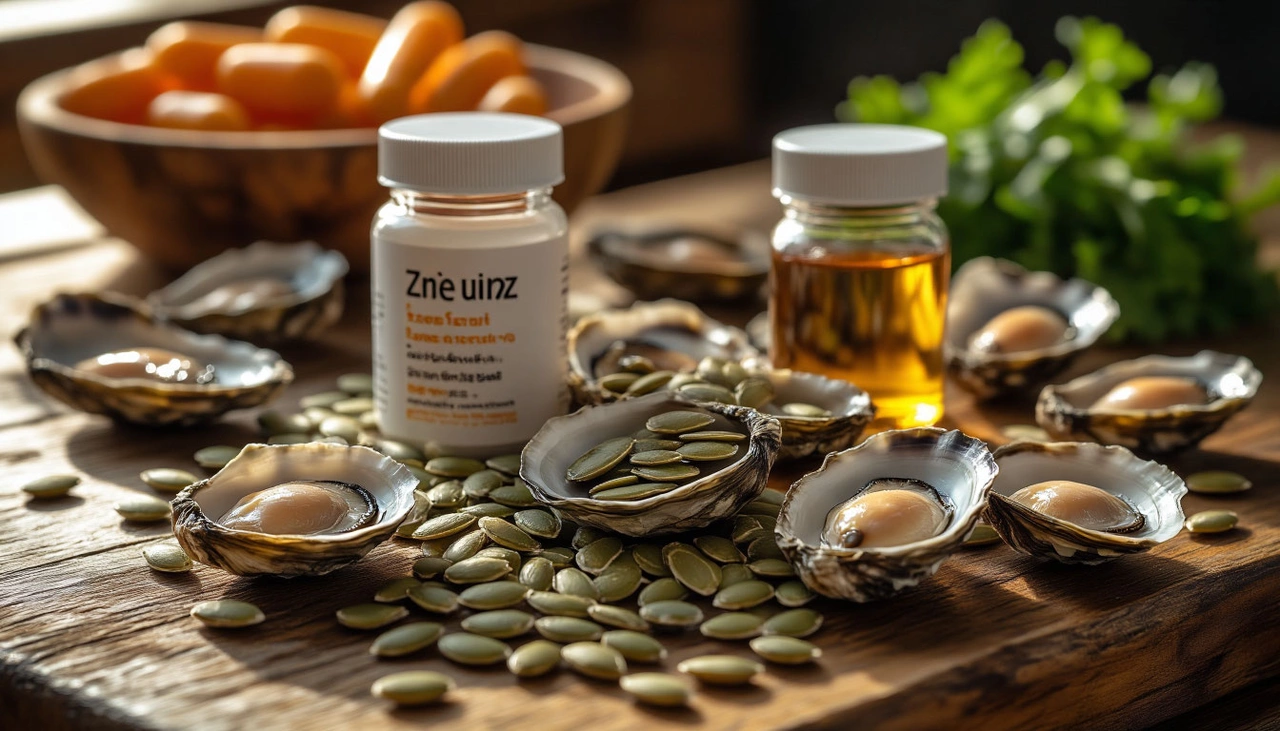
🛡️ Zinc’s Immune Power: Your First Line of Defense
One of zinc’s most celebrated roles is in immune system regulation. It supports the development and function of critical immune cells, such as T-cells and B-cells, which protect your body against pathogens.
Zinc also acts as an antioxidant, neutralizing harmful free radicals and reducing inflammation. A deficiency in zinc can lead to weakened immune responses, making you more susceptible to colds, flu, and even prolonged healing times.
💆♀️ Skin Deep: Zinc for Healthy Skin and Hair
Zinc is a quiet hero in the world of skincare. It helps regulate sebum production — the skin’s natural oil — and combats inflammation, making it beneficial for people struggling with acne or oily skin.
Additionally, zinc contributes to collagen production, supporting firm, smooth, and youthful skin. Since skin is the body’s largest organ and first barrier against infection, maintaining its health is also an indirect boost to your immune system.
And for your hair? Zinc supports follicle health and can help reduce hair thinning and breakage.

🍽️ Food Sources of Zinc: What to Add to Your Plate
Luckily, zinc is present in many everyday foods. The richest sources include:
- Shellfish (especially oysters)
- Red meat
- Poultry
- Legumes (like lentils and chickpeas)
- Whole grains (such as oats and quinoa)
- Nuts and seeds (pumpkin seeds are especially high in zinc)
It’s important to note, though, that some plant-based foods contain phytates — compounds that bind to zinc and reduce its absorption. This means vegetarians and vegans might need to pay extra attention to their zinc intake. In cases where your diet falls short, zinc supplements are a safe and effective way to meet your needs.
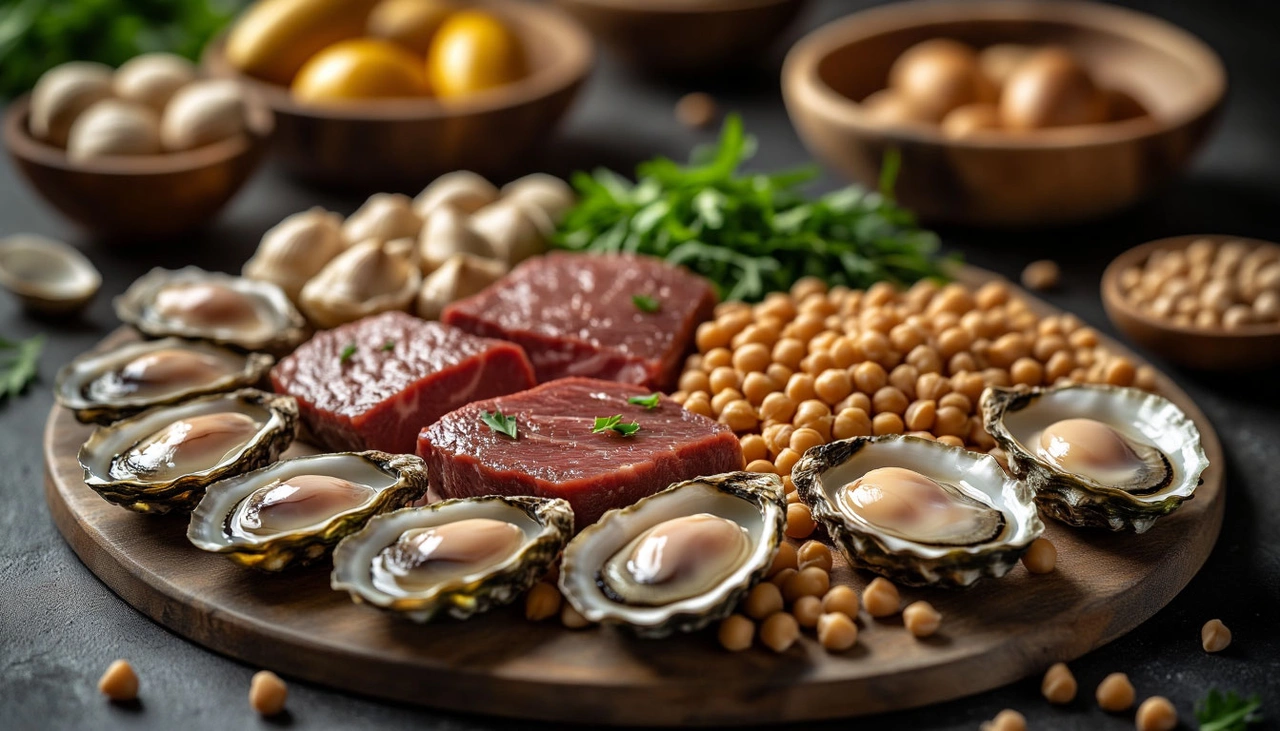
💊 Choosing the Right Zinc Supplement: What's the Difference?
If you’ve ever browsed zinc supplements, you may have felt overwhelmed by the variety. Let’s break down the most popular forms:
🧪 Zinc Chelate
This is a form where zinc is bound to amino acids, improving its absorption and tolerability. Chelated zinc is often easier on the stomach and absorbed more efficiently by the body. It’s ideal for general support of skin, immunity, and antioxidant defense.
🧬 Zinc Picolinate
This version binds zinc with picolinic acid, a substance naturally produced from the amino acid tryptophan. Known for its high bioavailability, zinc picolinate is ideal for people looking to boost their absorption levels significantly. Each dose usually provides about 22 mg of elemental zinc.
🍋 Flavo-Zinc (Citrate + Gluconate)
Flavo-Zinc combines zinc citrate and gluconate, two forms known for their gentle effect on the stomach and good absorption. Often found in lozenge form, it’s designed for a targeted antibacterial effect in the mouth and throat — helpful during colds or sore throats.
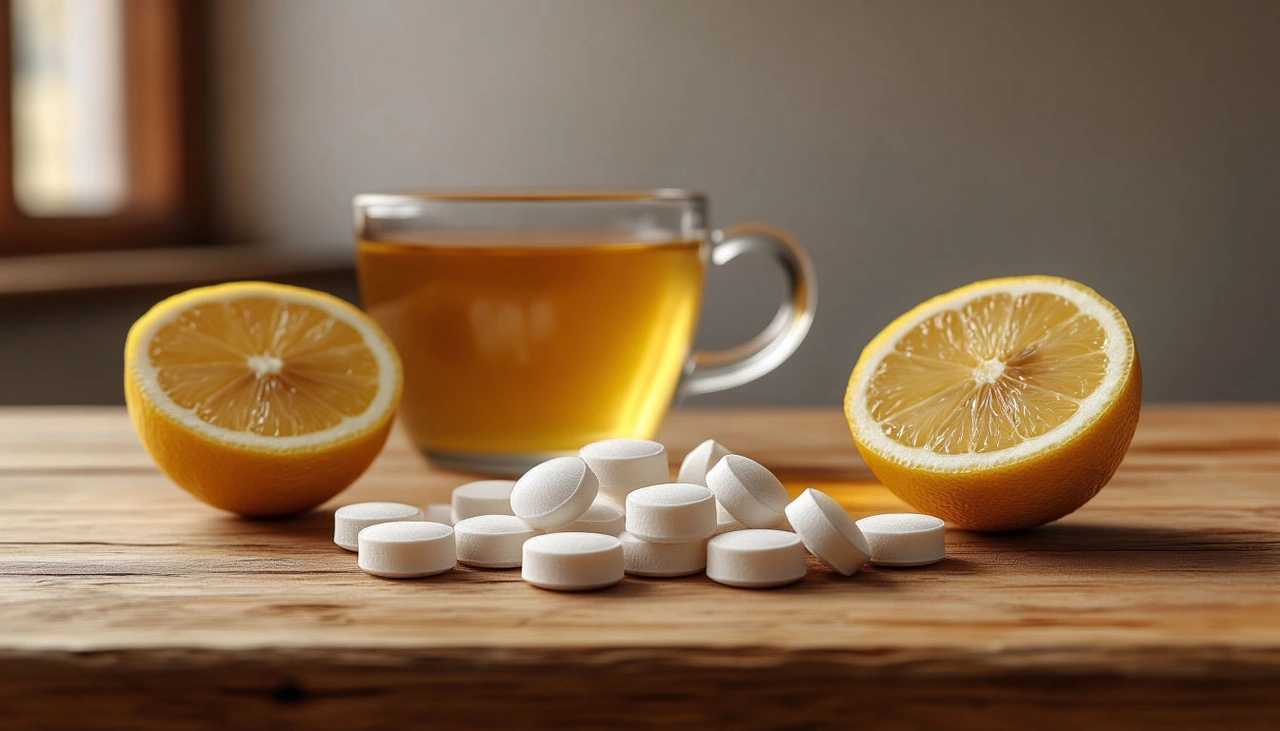
🌟 Final Thoughts: Don’t Overlook Zinc
Zinc is often overshadowed by more “popular” minerals, but its role in supporting immunity, skin, hair, and overall cellular health is undeniable. Whether through a balanced diet or the right supplement, ensuring you meet your daily zinc needs is one of the smartest investments in your health. Pro tip: Adult women typically need about 8-12 mg of zinc daily. Always consult your doctor before starting any supplement regimen, especially during pregnancy or if you have underlying health concerns.
🫀 What Makes Your Heart So Important?
Your heart is the powerhouse of your body. It’s not just a symbol of love — it’s a muscular pump that keeps every cell alive by circulating oxygen-rich blood. This vital organ works tirelessly to supply energy to all systems, but it needs your help to stay in peak shape. Unfortunately, modern lifestyles — full of stress, processed food, and inactivity — can overload the cardiovascular system and eventually lead to serious heart issues.
Before we dive into what you can do, let’s briefly understand how your heart works and why failure occurs.
🔄 How the Heart Works
The human heart has two sides: the right side pumps oxygen-poor blood to the lungs to refresh it with oxygen, and the left side sends this oxygenated blood throughout your body. This dual-pump system runs 24/7. However, this incredible process can weaken over time or under pressure.
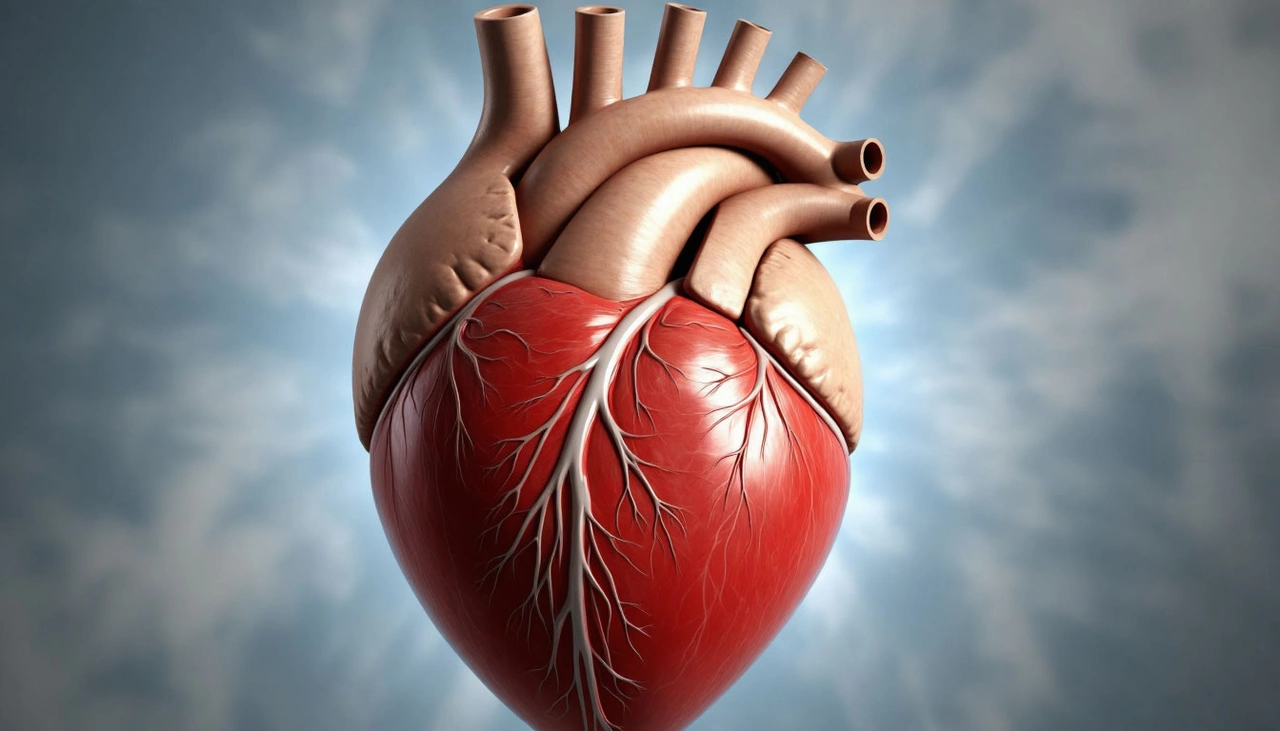
🚨 What Is Heart Failure?
Heart failure doesn’t mean the heart stops completely — it means the heart can’t pump blood efficiently enough to meet the body’s needs. It can affect one or both sides of the heart and may develop suddenly or slowly over time.
Common causes include long-term high blood pressure, coronary artery disease, or lifestyle-related strain. While some decline is natural with age, additional burdens — like poor diet, lack of exercise, and unmanaged stress — dramatically speed up the process.
🧡 3 Steps Toward a Healthier Heart
1️⃣ Keep Moving: Exercise Is Heart Medicine
Regular physical activity is a game-changer. It lowers bad cholesterol (LDL), raises good cholesterol (HDL), improves blood pressure, and helps blood vessels stay flexible and clean. Aerobic activities like brisk walking, dancing, swimming, and cycling are particularly beneficial.
🕒 Goal: At least 150 minutes of moderate aerobic exercise weekly, or 75 minutes of intense activity. Spread it out over the week — consistency matters more than perfection. Even 10 minutes a day makes a difference. Don’t aim for perfection; aim for momentum.

2️⃣ Eat for Your Heart
A heart-smart diet focuses on whole, unprocessed foods rich in fiber, healthy fats, lean proteins, and antioxidants. Here’s what to eat — and what to avoid.
Best Choices:
- Whole Grains & Fiber: Oats, barley, quinoa, and brown rice lower cholesterol and keep you full.
- Fruits & Veggies: Rich in vitamins, fiber, and plant-based antioxidants. Go for a rainbow on your plate.
- Nuts: Almonds, cashews, and pistachios supply magnesium, vitamin E, and healthy fats.
- Lean Poultry & Fish: Chicken and turkey without skin are great sources of protein, while cold-water fish like salmon and sardines offer anti-inflammatory omega-3s.
- Healthy Oils: Extra virgin olive oil, flaxseed, and avocado oils promote good cholesterol and reduce inflammation.
Avoid:
- Saturated Fats: Found in red meat and full-fat dairy; these raise LDL cholesterol.
- Trans Fats: Present in fried foods, baked snacks, and fast food — they increase risk of heart disease and stroke.
- Added Sugars: Soft drinks, packaged snacks, and sugary cereals raise blood pressure and damage blood vessels.
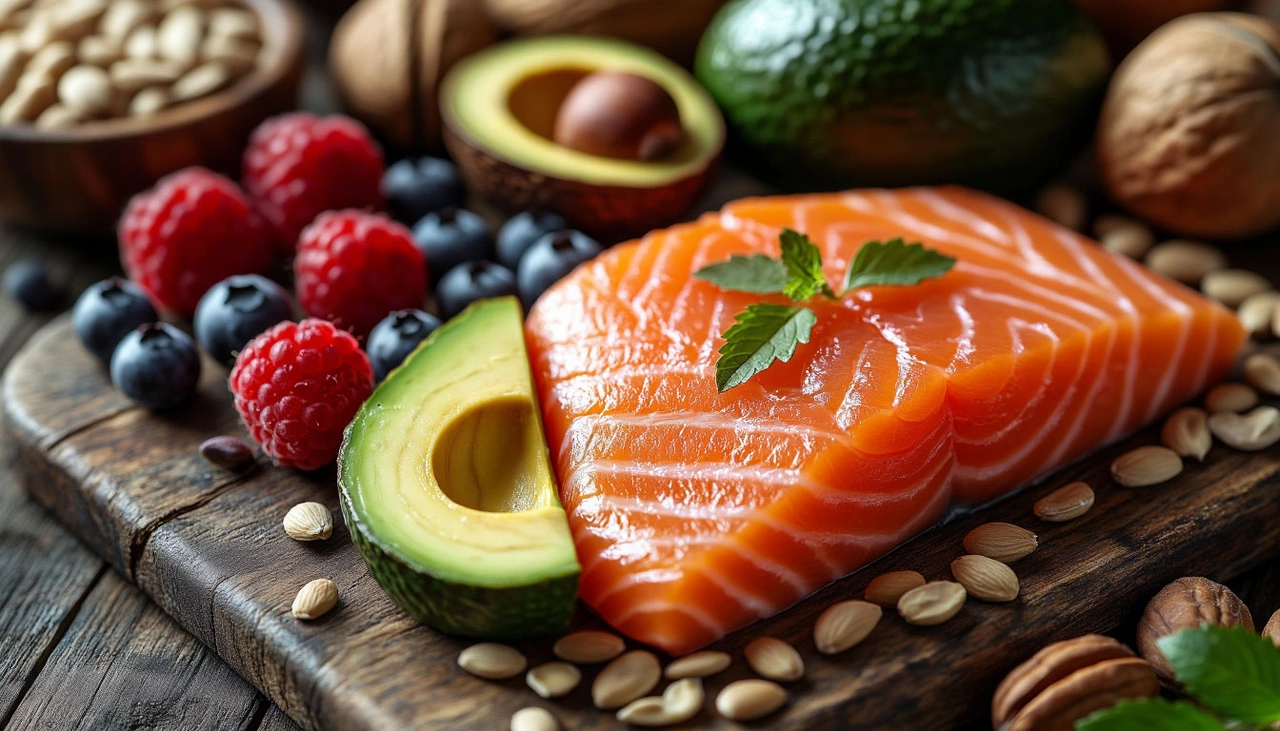
3️⃣ Manage Stress Before It Manages You
Stress doesn't just affect your mood — it directly impacts your heart. Chronic stress raises blood pressure and contributes to inflammation, poor diet, lack of sleep, and unhealthy coping habits like smoking or binge eating.
Tips to reduce stress:
- Learn to say “no” to overcommitments
- Practice mindfulness or short meditations
- Break down large tasks into smaller steps
- Talk to someone you trust regularly
- Keep a gratitude journal or daily checklist
Even small actions — a walk, deep breathing, or a five-minute digital detox — help reset your nervous system and protect your heart.
🧬 Your Heart Reflects Your Habits
You don’t need a dramatic lifestyle overhaul to protect your heart. Simple, steady changes — walking daily, swapping out processed snacks, or taking five minutes to breathe — make a real difference over time. Your heart gives you life every second. The least we can do is treat it with the care and attention it deserves.